How Going To Jail Can Put Wisconsin Inmates In Debt
At least 23 Wisconsin counties assess "pay-to-stay" fees, which charge inmates for room and board for the time they are incarcerated. In addition, there are other fees inmates must pay, depending on the county they are in.
September 16, 2019
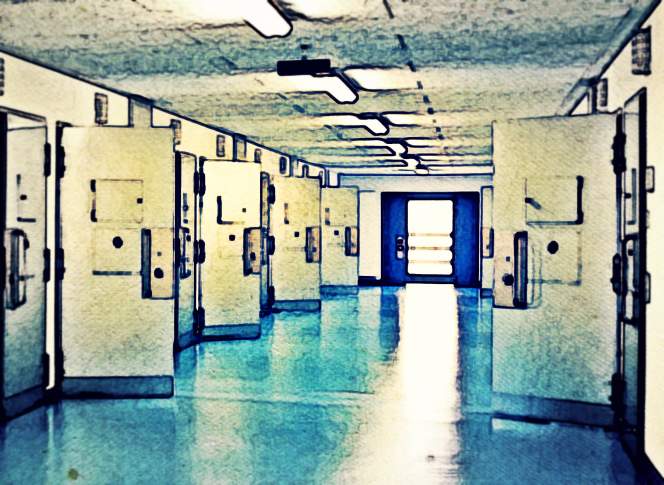
Portage County jail cells illustration

In 2011, Sean Pugh was arrested for allegedly violating terms of his release from prison. A year and a half into his roughly two-year stay in the Brown County Jail, he realized he owed the county around $17,000 — the result of a $20 daily “pay-to-stay” fee plus fees from previous jail stints.
Brown County is one of at least 23 Wisconsin counties that assess “pay-to-stay” fees, which charge inmates for room and board for the time they are incarcerated, according to a Wisconsin Watch survey of county jails.
“While most inmates have exploited society in some way, financial exploitation of the incarcerated creates a vicious cycle that contributes to the pitfalls of getting back on one’s feet after release,” Pugh said in an email. “The entire incarceration experience leaves one in a worse financial state then when they went they went to jail/prison.”
Wisconsin is among at least 40 states where some inmates are required to pay daily room and board fees.
But this practice varies across states, according to the Brennan Center for Justice, a New York-based public policy and law institute that focuses on democracy and justice. Some states charge jail inmates, prison inmates or both. Some states charge only inmates who are working, while other states charge all inmates.
Pugh, who is now incarcerated at the state’s Stanley Correctional Institution in Chippewa County, said in an email that Brown County ultimately agreed to forgive the entire debt. He had argued that it was the Department of Corrections’ decision to keep him jailed so long while it investigated the alleged violation of his release terms.
Pugh filed a small claims action seeking repayment of the money he had already paid, alleging the county was trying to “double dip” by billing both him and the state for his stay. Pugh said he was offered a settlement of $1,000, which he accepted.
“Had I not needed the money, I could have held out on principle to expose this, but I was not in a position to pass on the settlement,” Pugh said.
Brown County’s imposition of pay-to-stay fees was upheld in a 2013 federal decision. Former inmate Lamon Barnes’ federal lawsuit alleged the county’s pay-to-stay fee when applied to pretrial detainees is unconstitutional.
Barnes was booked into the Brown County Jail in January 2011, was found guilty in February 2012 and sentenced a month after that — resulting in a $9,160 pay-to-stay bill.
Judge Lynn Adelman for the U.S. District Court for the Eastern District of Wisconsin found that fee did not violate the prohibition against subjecting a detainee to punishment before conviction.
“There is no evidence that Brown County was motivated by a desire to punish pretrial detainees when it collected lock-up fees from them,” Adelman wrote. “The policy appeared to be rationally related to the county’s legitimate interest in ‘effective management of the detention facility.'”
Under Wisconsin law, pay-to-stay can apply to the entire period of time the person is in jail, including pretrial detention. It is then up to the counties whether they want to charge only sentenced inmates or also charge those who are not sentenced.
The jail systems in Wisconsin’s two largest counties — Dane and Milwaukee — do not levy pay-to-stay fees. But in other Wisconsin counties, jails are taking in hundreds of thousands of dollars a year, the Wisconsin Watch survey found.
Such fees have escalated in recent decades. The U.S. Supreme Court recently ruled in a 9-0 decision that financial penalties levied by states may be so high as to violate the federal Eighth Amendment constitutional protection against excessive fines.
Noting that excessive fines for “vagrancy” were used after the Civil War to re-enslave freed men, Justice Clarence Thomas wrote in his concurrence: “The right against excessive fines traces its lineage back in English law nearly a millennium, and … has been consistently recognized as a core right worthy of constitutional protection.”
In Wisconsin, each county decides whether or not to charge non-working jail inmates a daily room and board fee. Many Wisconsin counties charge inmates with Huber privileges, which allow the inmate to leave jail for work, school or other reasons. Inmates on work release in Wisconsin state prisons are also charged room and board.
Jail fees often impact low-income individuals the hardest — the average income for someone arrested is a little more than $19,000, according to the Prison Policy Initiative, a think tank that works against what it describes as over-criminalization.
Many people could have a hard time paying such fees. Wisconsin counties that charge a pay-to-stay fee average $13 a day, Wisconsin Watch found, or about $390 a month. According to the Federal Reserve, about 40 percent of people in the United States could not afford a surprise $400 payment.
“If I could create a perfect system to maintain inequality, create inequality and sustain it over time, this is the system,” said Alexes Harris, a University of Washington sociology professor. “The process perfectly labels, stigmatizes, financially burdens and imposes further legal consequences to poor people. … Somebody who is poor has that debt for life, and it tracks them for life. It’s a long-term duration of punishment for poor people.”
Fines and fees stack up
In addition to pay-to-stay, there are other fees inmates must pay, depending on the county they are in. Some may have to pay for work release, medical visits, electronic monitoring, phone calls and DNA collection.
When Mishelle O’Shasky was serving a 9-month jail sentence in 2004 for drunken driving, she was able to work and see her children while on Huber. After two months, she served the rest of her sentence from home on electronic monitoring.
O’Shasky, who was a waitress at the time trying to support herself and four children, was paying around $500 a month for electronic monitoring — almost as much as her apartment rent.
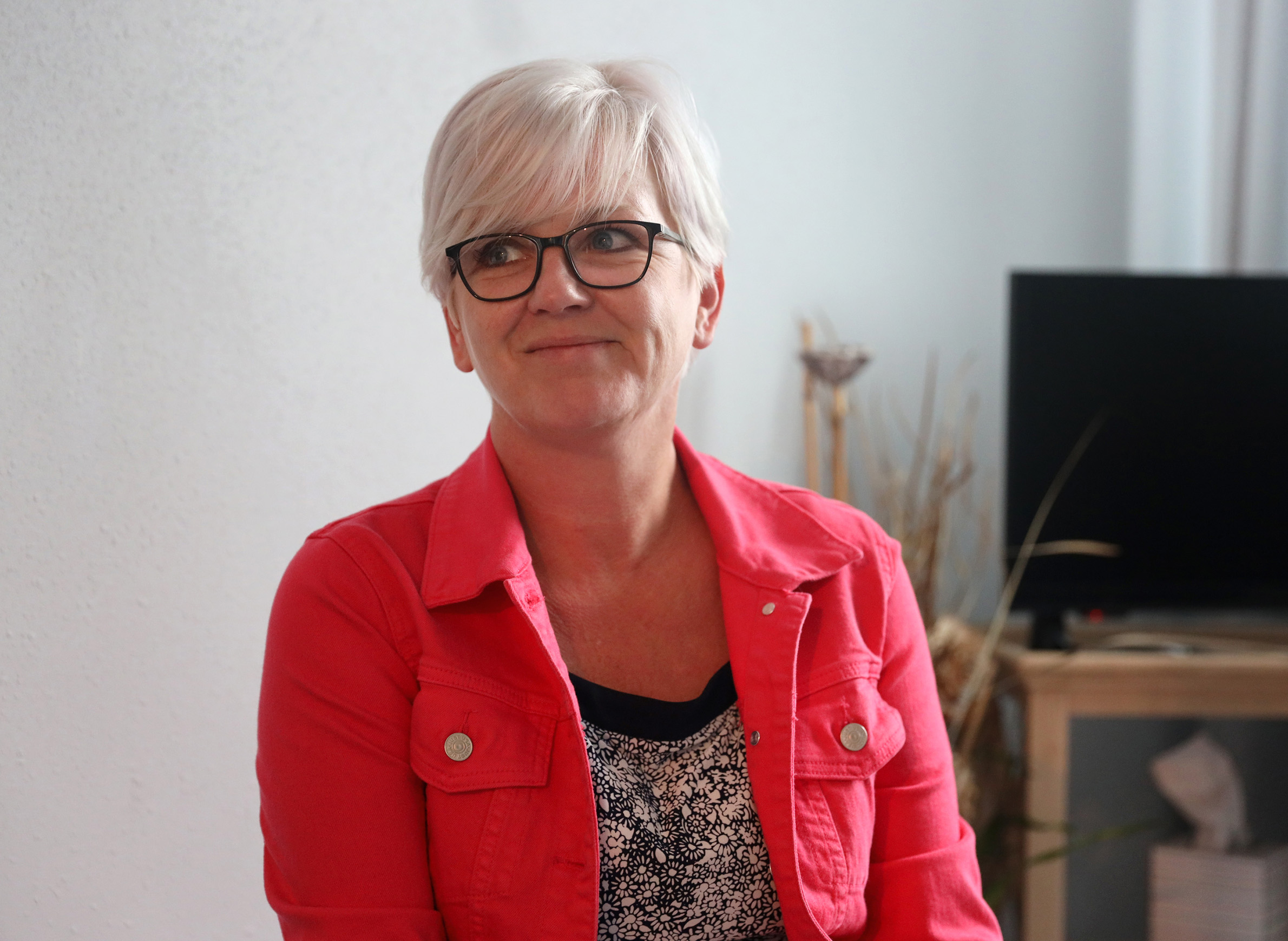
It was difficult to pay for both electronic monitoring and her regular bills, said O’Shasky, who was in and out of jail and prison for more than two decades because of substance use and mental health challenges.
“Even when you think you’re done paying for things, you’re not,” said O’Shasky, who lives in Rudolph, Wisconsin. “It’s traumatizing. You have people constantly running for their lives. I hate to be extreme, but that’s just the reality.”
Financial penalties are embedded within the criminal justice system, said Alexes Harris, author of the 2016 book A Pound of Flesh: Monetary Sanctions as a Punishment for the Poor.
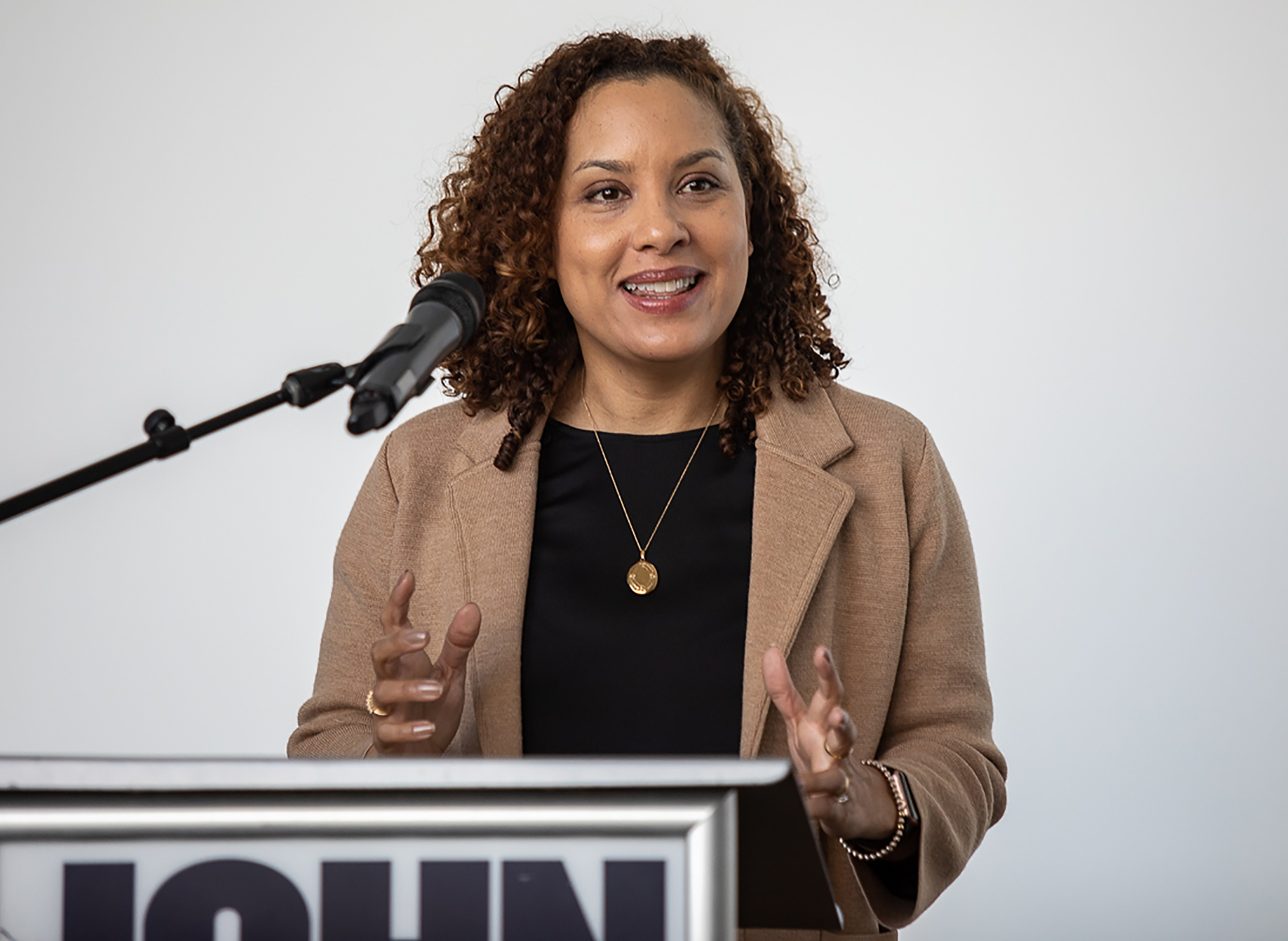
Even though monetary punishment has long existed, there has been a dramatic increase since the 1990s and early 2000s, Harris said. Wisconsin’s pay-to-stay law was enacted in 1996.
While some county jails in Wisconsin clearly spell out their jail fees, most do not, Wisconsin Watch found.
Prior to working as a criminal defense attorney, David Stegall was as an assistant district attorney in Milwaukee County. As a prosecutor, jail fees were not something he saw. When he got to private practice, however, the fees became more visible.
“There’s so much money that’s connected to a case, either from hiring an attorney or posting bail or paying for part of your defense,” Stegall said. “There’s a lot that goes into it that’s separate and apart from anything to do with punishment.”
When Stegall has spoken with his clients, he said they are usually “shocked” by the fees charged. Stegall said even with a low-level crime like disorderly conduct, the total can easily be $500 to $600 after fees such as court costs and a DNA sample are added in. The charge for submitting a DNA sample is $200 to $250 in Wisconsin.
Wisconsin Watch got pay-to-stay and booking information for 60 of 72 Wisconsin counties. Of those, 36 county jails charge a booking fee, and 17 counties charge for both booking and pay-to-stay. Eighteen charge neither a booking fee or a pay-to-stay fee.
The highest booking fee reported was $50 in La Crosse County and the lowest reported was $5 in Crawford County. On average, a booking fee was $27. The highest reported pay-to-stay rate was $26 per day in Winnebago County, and the lowest was $5 per day in Iron, Dunn and Wood counties.
County jails also can charge for medical visits by a doctor or a nurse. On average, inmates are charged $6 for a nurse’s visit and around $12 for a doctor’s visit. Grant County charges $47.50 for a doctor’s visit and Iowa County charges $50, which were the highest amounts reported to Wisconsin Watch.
The cost of electronic monitoring for inmates on some form of release also varies by county, Stegall said, but it is between $15 and $35 per day — or up to $1,050 a month.
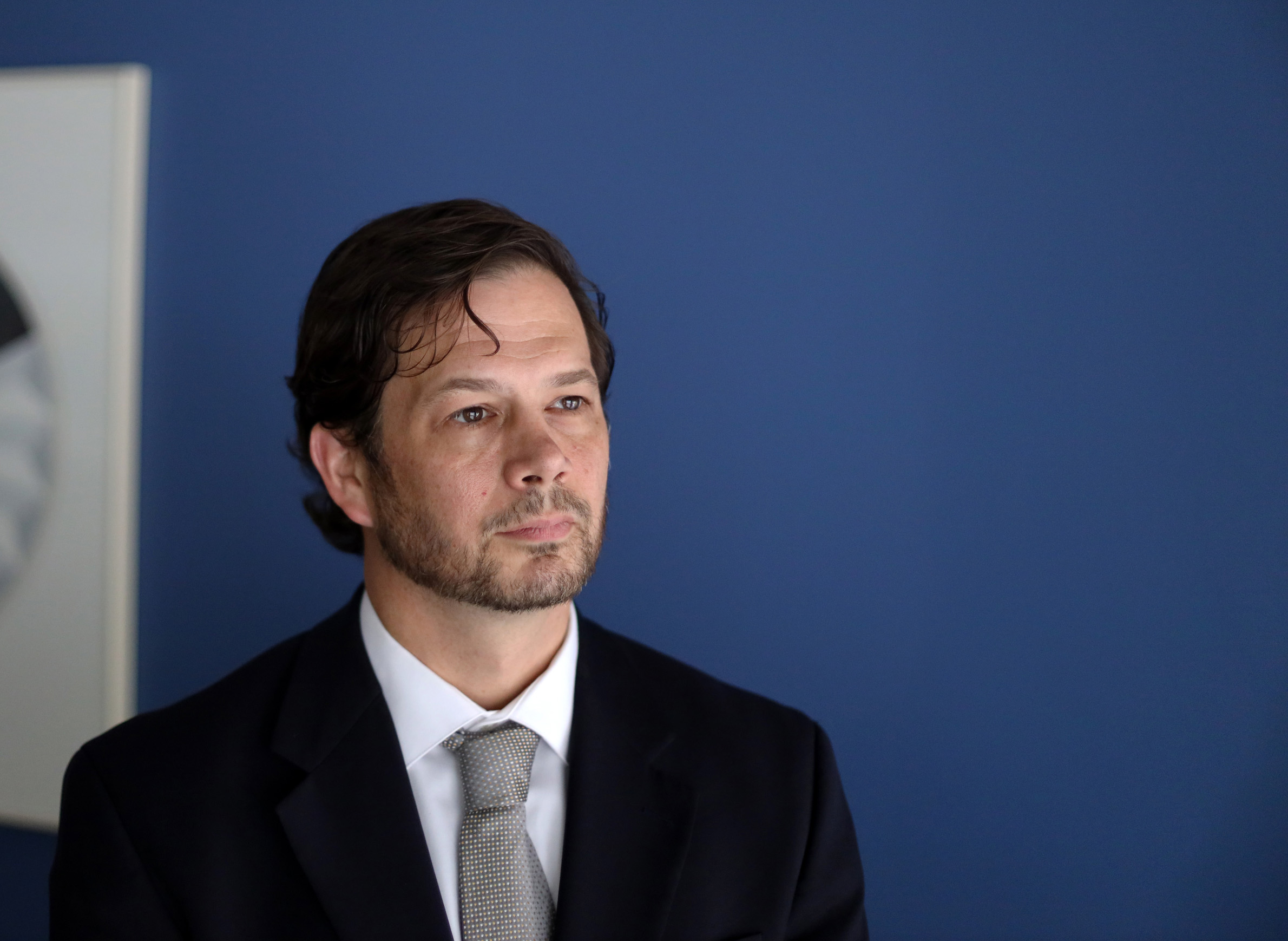
The annual revenue from these fees also varies. Some counties receive less than $20,000 and one, Winnebago County, receives as much as $950,000. Typically, this revenue either goes back to the jail or to the county’s general fund.
Marathon County jail administrator Sandra La Du said the jail is “far from making money” on these fees. La Du reported that the Marathon County jail receives $700,000 in fees annually. The revenue goes back into the jail budget to run a “constitutionally sound” jail and pay for necessities like lights, water and heat, she said.
Pay-to-stay varies across the country
One of the difficulties of pay-to-stay is how much it varies across states, which makes it “complicated to unravel,” said Joanna Weiss, co-director of the Fines and Fees Justice Center. The New York-based center works to eliminate fees in the justice system.
“The justice system is meant to serve everyone — it does serve everyone — and it needs to be funded equitably, not on the backs of people going through it,” Weiss said.
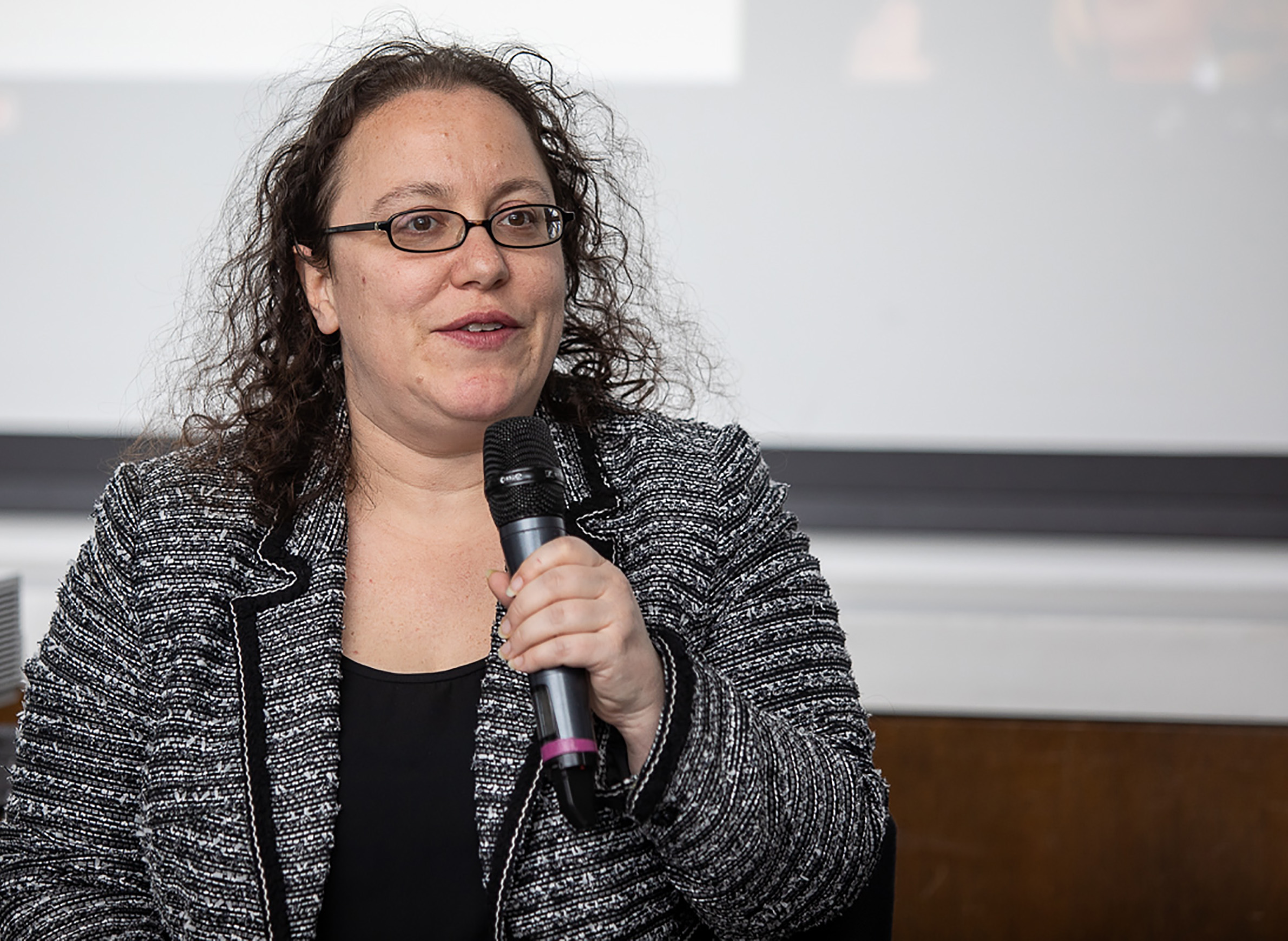
Michigan counties can charge inmates for their stay as long as it is no more than $60 per day. Ohio counties charge an average of $35 per day, with the highest rate being close to $67, the American Civil Liberties Union of Ohio found.
In mid-June, an Indiana county passed an ordinance that was proposed by the sheriff that allows Clinton County to charge inmates up to $30 per day.
In Wisconsin, counties cannot charge more than their actual per-day cost of keeping an inmate in jail.
Sandra La Du does not think there should be the same pay-to-stay fee across the state because different counties have different costs. Marathon County has a pay-to-stay fee of $30 for the first day and $18 for each day after. The county only charges sentenced inmates.
The average expected stay in jail was 25 days in 2016, according to the U.S. Bureau of Justice Statistics. That means someone incarcerated in Winnebago County — where the daily fee is $26 — could leave with an average $650 pay-to-stay bill, in addition to other fees.
Wisconsin Watch found an average pay-to-stay fee is $13 per day, so inmates incarcerated in a pay-to-stay county for a typical stay could find themselves leaving with a $325 bill.
Working inmates pay
In Marathon County, inmates who are serving sentences in the jail spend an average of 85 days there, totaling a little more than $1,500 in pay-to-stay fees.
Bayfield County, which does not have a booking or pay-to-stay fee, charges $110.78 per week for Huber privileges. The Wisconsin Watch survey found inmates on Huber are charged anywhere from $15 to $26 per day, depending on the county where they are incarcerated.
Bayfield County’s jail administrator Kathleen Haiden said in an email that people with a job should help pay, but those without a job should not.
“We wouldn’t want to put that on the family when they are probably already financially challenged,” Haiden said.

In addition to pay-to-stay, inmates on work release in Wisconsin prisons also are responsible for paying income taxes, transportation, child support, restitution and other responsibilities under state law.
The exact amount withheld from a prison inmate’s work release check depends on their obligations, Wisconsin Department of Corrections spokesperson Clare Hendricks said in an email. Each category has a maximum amount that can be withheld, Hendricks said.
From each check, 37% goes to room, 8% goes to board and 21% goes to transportation. The maximum amounts taken per month for room, board and transportation are $365, $110 and $265, respectively. For these three categories, an inmate could be responsible for paying $740 per month for inmates who work outside the institution.
‘You’re just stuck forever’ with fees
Mishelle O’Shasky is the founder and executive director of Peer Association Inc., a La Crosse, Wisconsin, nonprofit that provides reentry services for people like herself.
The first time O’Shasky went to prison was in 2000 for failing to pay child support. She owed a couple of thousand dollars. After she got out of prison, O’Shasky still owed the money plus interest.
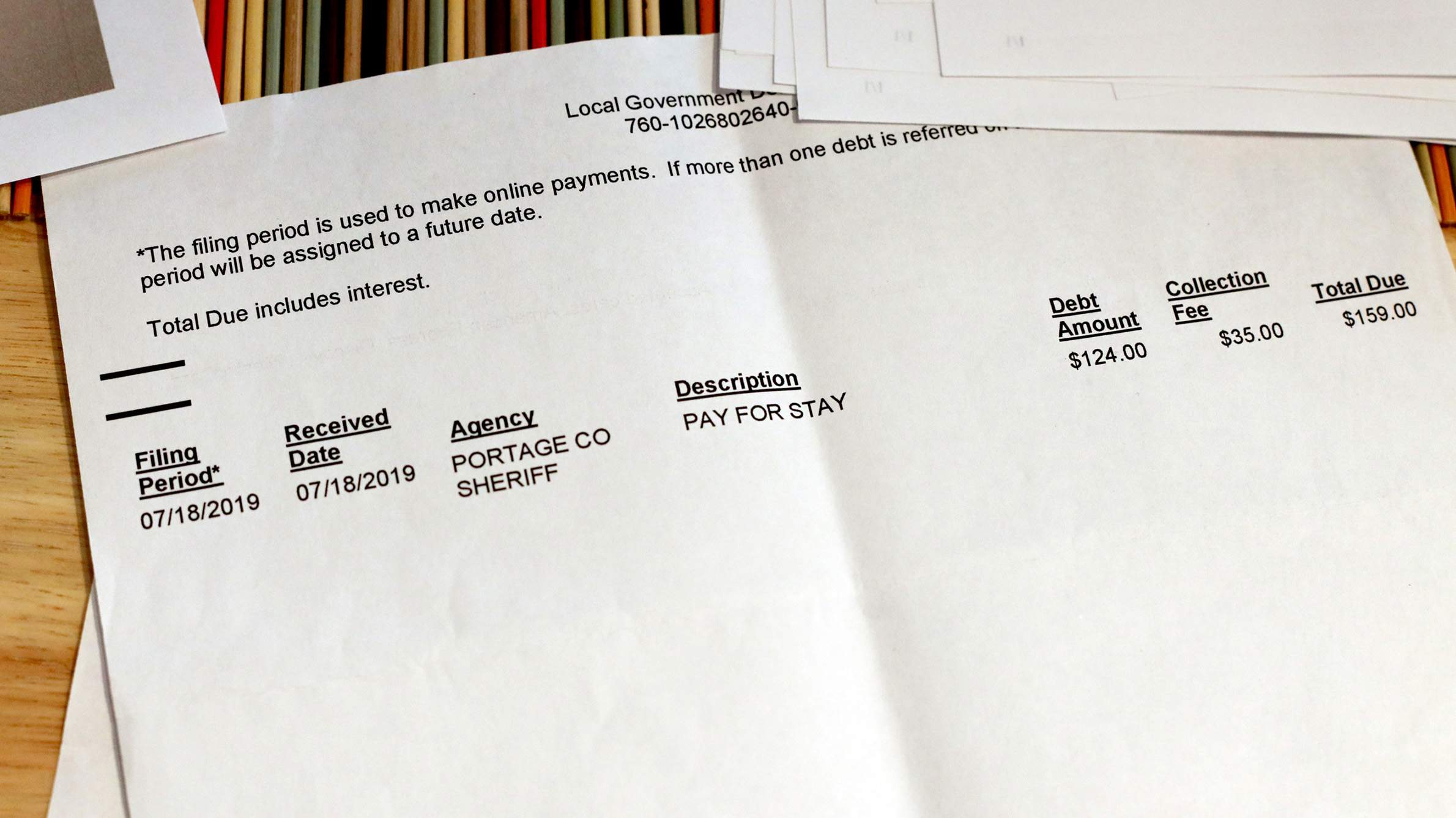
“I ended up paying like $40,000 in child support when the court ordered $10 a week back in 1992,” said O’Shasky, who was in prison three different times. “You’re just stuck forever … I just finished paying that, and my child is 27 years old.”
“I have four kids and this is only on one of the children, and they separated me from my kids. But I didn’t have the money to fight it. I would’ve paid the $10 a week if I had the money, right? You can’t win.”
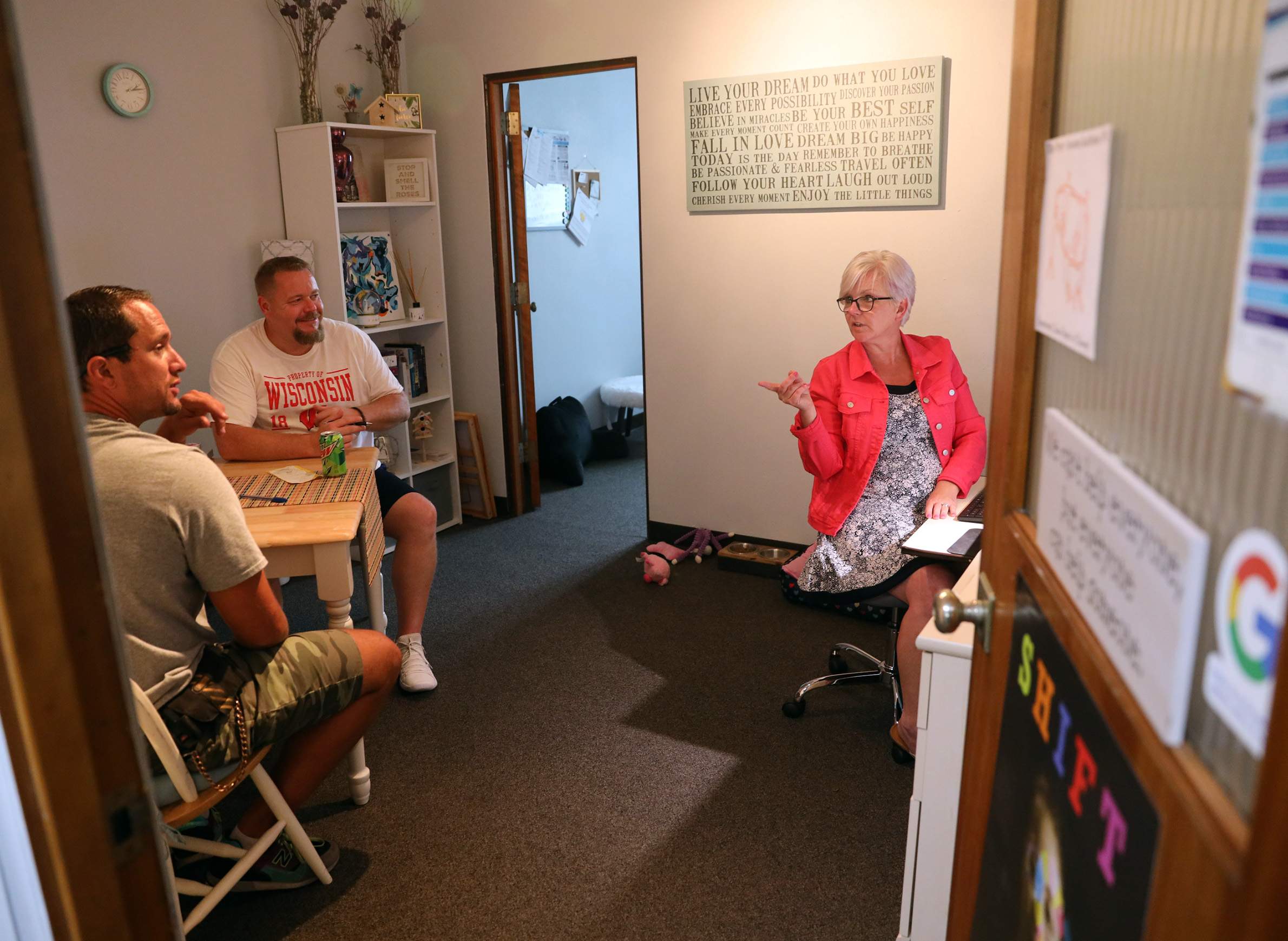
As jail populations swell, county jails are struggling for money, attorney David Stegall said. The solution, he said, is often to charge the offender.
A common argument made by those who support pay-to-stay is these individuals are committing crimes and creating a need for jails, so they should be the ones paying the fees, said John Cooper, the executive director of Safe & Just Michigan. The Lansing group focuses on reducing Michigan’s use of incarceration.
Another argument in favor of pay-to-stay is that it can act as a deterrent and encourage people to behave differently, just as cash bail is seen as an incentive to come back to court, Cooper said
“There is a value in creating responsibility,” agreed Sandra La Du, adding that she sees the argument for both sides when it comes to pay-to-stay and other jail fees.
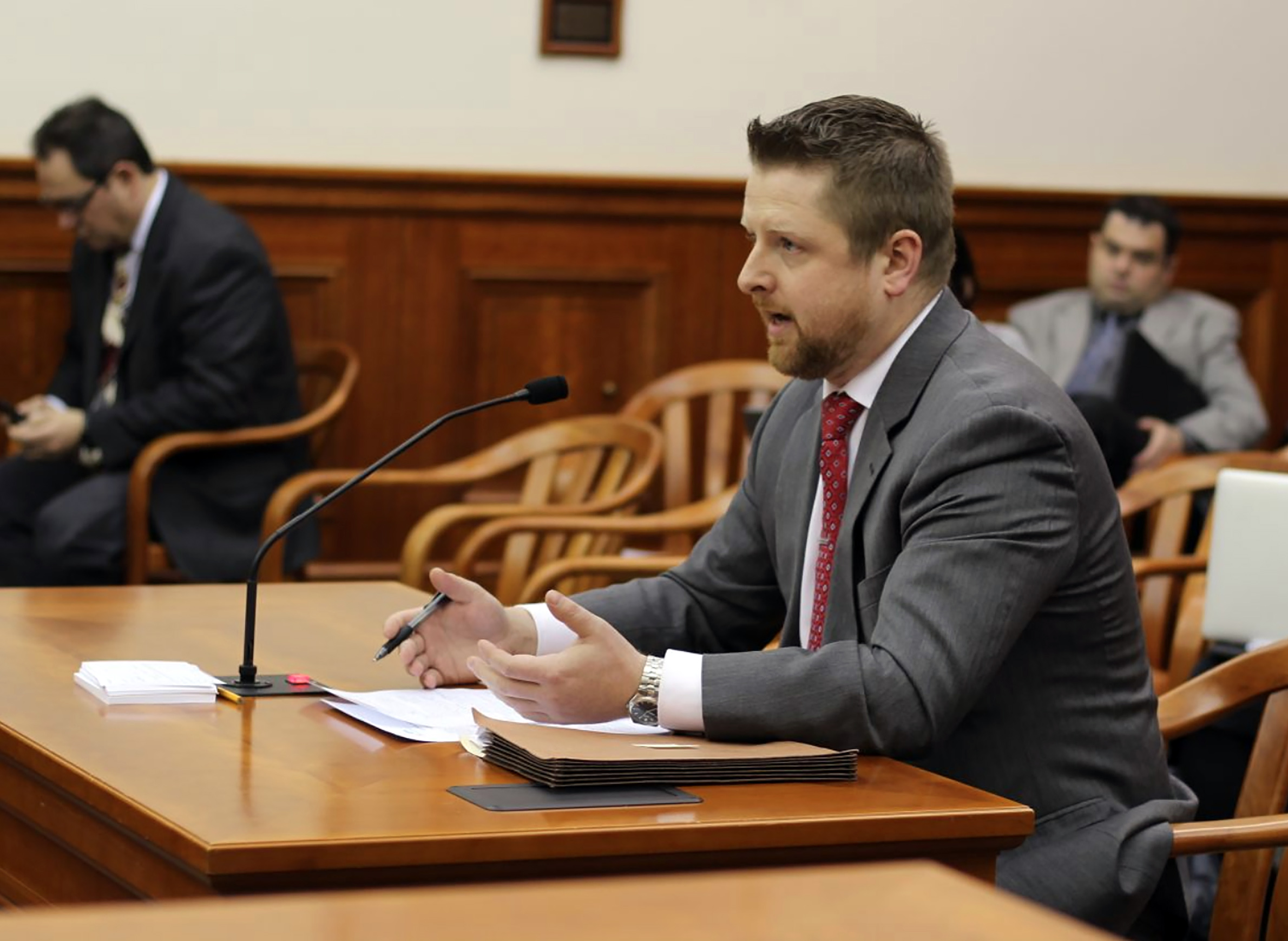
Cooper said these arguments might have superficial appeal, but they are counterproductive in practice. Overwhelmingly, the people who get involved with the justice system are there because of lack of opportunity and poverty, Cooper said.
“Because pay-to-stay exacerbates the underlying causes of involvement in the justice system, there is a good argument that it undermines public safety,” Cooper said.
In fact, a 2018 report by the nonpartisan, nonprofit group Alabama Appleseed found 38% of respondents had committed another crime in order to pay off the fines and fees they already had. In order to pay their court debt, 83% of respondents said they gave up paying for necessities like rent, food and medical bills, according to the social-justice group.
“If you get sent to jail … probably you are going to lose your job. When you’re coming out of jail, you’re going to need to get a car,” Cooper said. “If you can’t get a car loan because your credit is bad because you’ve got all this criminal justice debt, it’ll be hard to get a job. How are you going to pay it all back? What are you going to do to provide for yourself and your family?”
Momentum against fees?
Alexes Harris said the Timbs v. Indiana case — where it was ruled the excessive fines clause of the Bill of Rights applies to the states and not just to the federal government — was a major step forward. Now the issue, Harris said, is how excessive is defined.
“We don’t have our state supreme courts or the U.S. Supreme Court really setting criteria or standards for how sentencing judges are supposed to establish what is excessive, what is a fair fine or fee, what is ability to pay,” Harris said. “We don’t have these clear standards, which is so problematic on the ground because you get a huge variation.”
California state Sen. Holly Mitchell introduced legislation in January to eliminate criminal administrative fees in California. San Francisco is thought to be the first county in the United States to get rid of fees associated with incarceration, such as booking, probation and electronic monitoring fees.
In March, the Missouri Supreme Court ruled courts do not have the authority to jail people when they cannot pay incarceration fees. In early June, Nevada passed a law eliminating juvenile fines and fees.
New Hampshire’s Republican Gov. Chris Sununu signed a measure in July repealing the state’s pay-to-stay law.
“While it feels overwhelming, there is a great deal of momentum, and people need to realize there are alternatives,” Harris said. “Yes, we still want to hold people accountable for their offending, but we need to make sure we do it in a way where they can show accountability, make amends and then move forward to have productive lives.”
Izabela Zaluska’s work on this story was supported by a 2019 John Jay/Arnold criminal justice reporting fellowship. All reporting, editing and presentation decisions were made by the nonprofit Wisconsin Watch, which collaborates with Wisconsin Public Radio, Wisconsin Public Television, other news media and the UW-Madison School of Journalism and Mass Communication. All works created, published, posted or disseminated by Wisconsin Watch do not necessarily reflect the views or opinions of UW-Madison or any of its affiliates.
 Passport
Passport

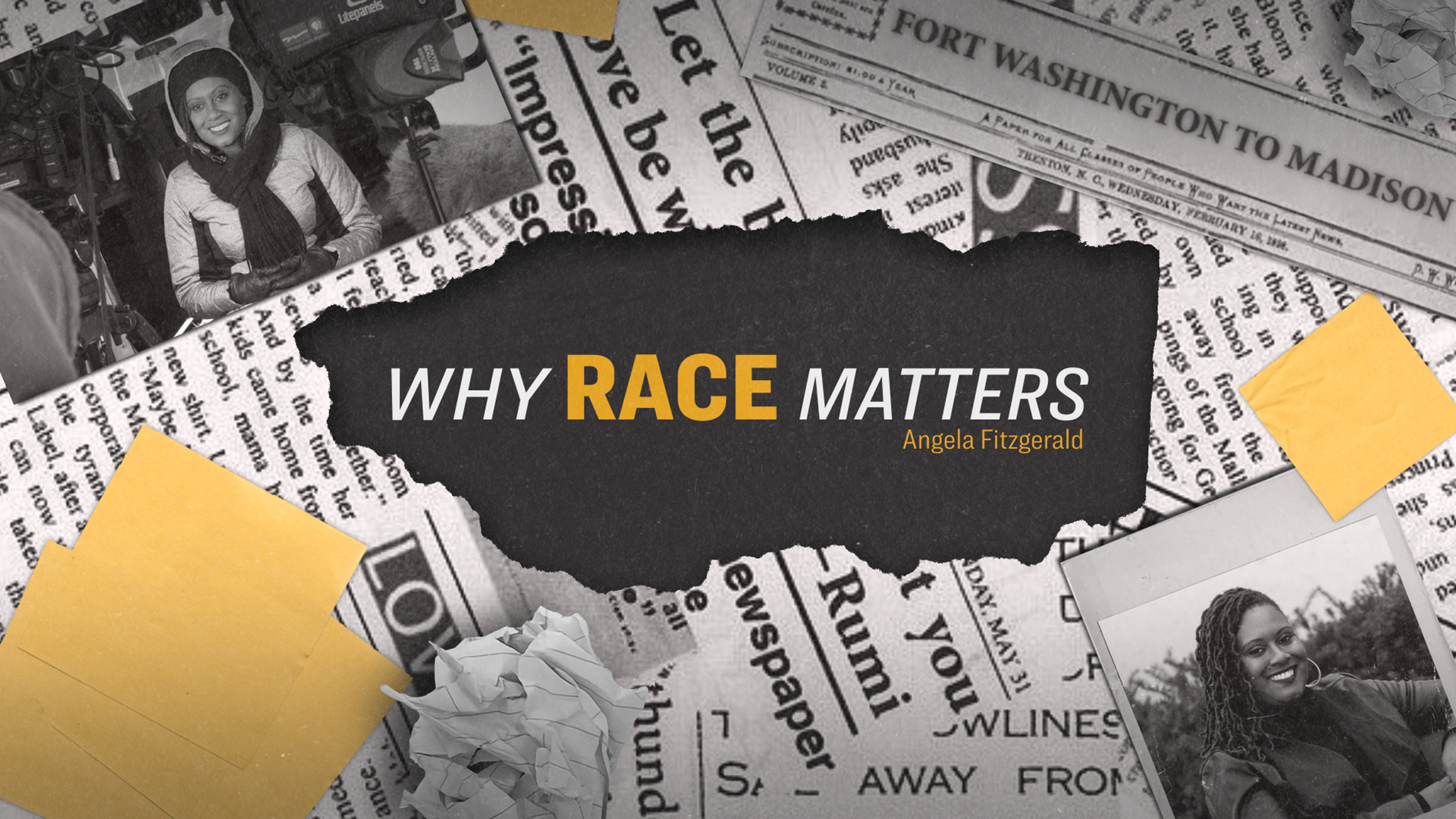


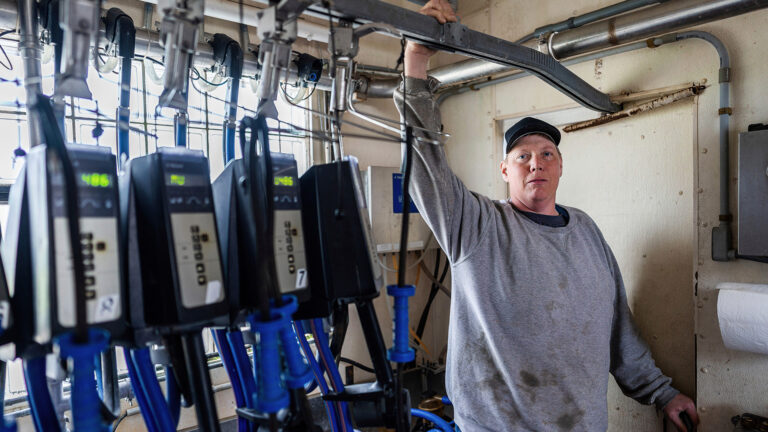
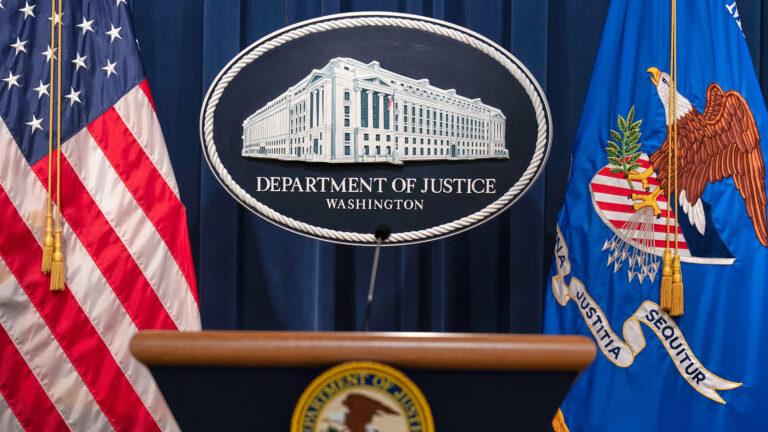
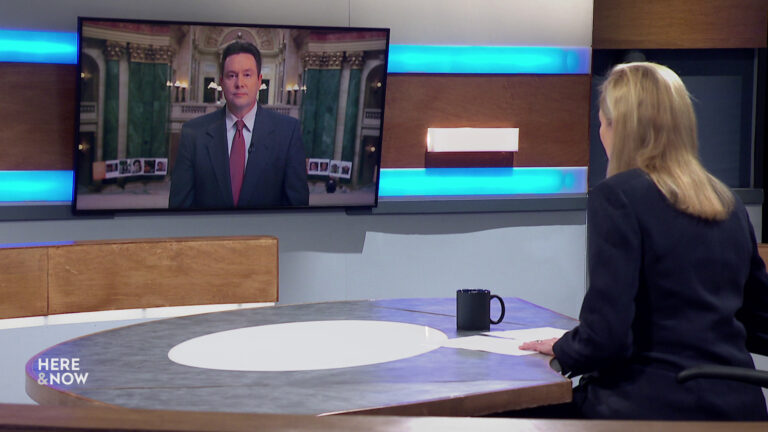


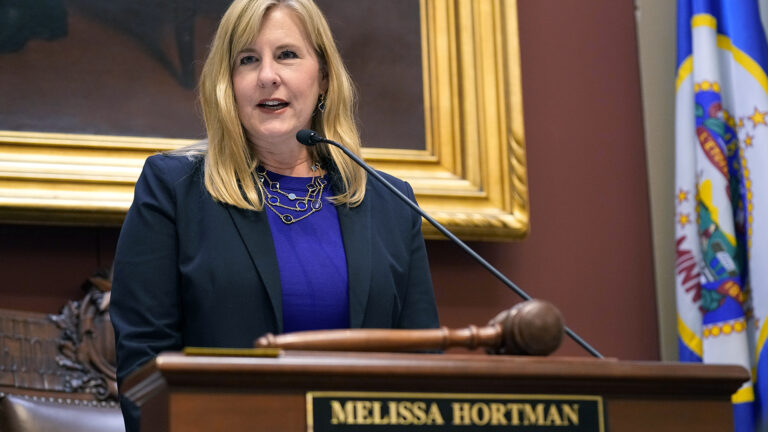


Follow Us